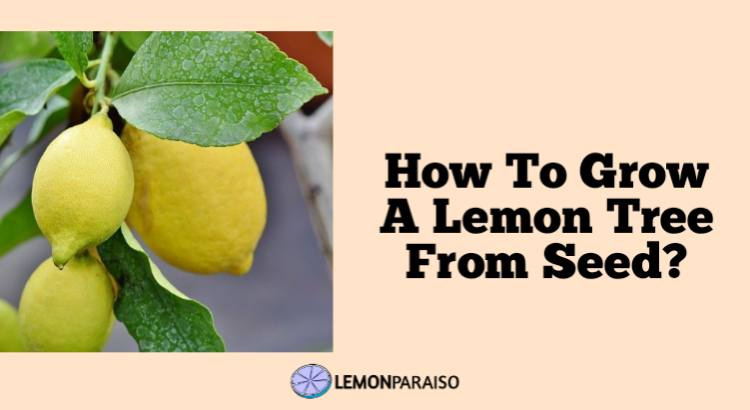Can You Grow Lemon Trees In Melbourne?
Lemon trees are a great addition to any garden, offering not only a delicious fruit but also a fragrant addition to the landscape. However, the question of whether lemon trees can thrive in Melbourne’s climate is a valid one. Melbourne is known for its cool winters and hot summers, which can pose challenges for growing certain plants.
Can You Grow Lemon Trees In Melbourne?
Lemon trees can indeed be grown in Melbourne, although certain factors need to be considered for optimal growth. The city’s temperate climate provides the necessary conditions for these trees to thrive, but it’s important to choose a suitable variety that can tolerate cooler temperatures.
Gardeners in Melbourne should ensure their lemon trees are protected from frost, as cold snaps can damage or kill the trees. By selecting a well-draining site and providing adequate care, lemon trees can flourish in this region.
Proper pruning, watering, and fertilizing are all essential to the tree’s overall health and fruit production. Ultimately, with the right approach and care, growing lemon trees in Melbourne can be a rewarding endeavor.
What Is The Best Time To Plant Lemon Trees In Melbourne?
The best time to plant lemon trees in Melbourne is during the early spring months, typically from September to October. During this period, temperatures are milder and the soil is beginning to warm up, providing optimal conditions for root development.
Planting in early spring allows the tree to establish itself before the hot summer months, ensuring a stronger, healthier tree. Additionally, lemon trees planted at this time will have a longer growing season, which can result in more vigorous growth and better fruit production.
Gardeners should avoid planting during the colder winter months, as the risk of frost can be detrimental to young trees. Overall, early spring offers the best conditions for planting lemon trees in Melbourne.
What Are The Best Lemon Tree Varieties To Grow In Melbourne?
Several lemon tree varieties are well-suited to Melbourne’s climate, with some being more cold-tolerant than others. The Eureka lemon is a popular choice due to its heavy fruiting and tolerance of cooler conditions.
The Lisbon lemon is another excellent option, offering a similar taste and appearance to the Eureka but with slightly higher cold resistance. Meyer lemons, a sweeter and more compact variety, are also well-adapted to Melbourne’s climate, making them perfect for smaller gardens or container planting.
Additionally, the Lemonade tree, a hybrid between a lemon and a mandarin, is worth considering for its sweet, juicy fruit and suitability for Melbourne’s environment. Each of these varieties has its unique qualities, making it essential to choose the one that best suits your needs and preferences.
What Type Of Soil Is Best For Growing Lemon Trees In Melbourne?
Lemon trees thrive in well-draining soil with a slightly acidic to neutral pH, ranging from 6.0 to 7.0. In Melbourne, it is crucial to ensure that the soil drains well, as waterlogged soil can lead to root rot and other diseases.
Adding organic matter such as compost, well-rotted manure, or leaf mold can improve soil structure and drainage while providing essential nutrients for the tree. Sandy loam or loam soils are particularly well-suited for lemon trees, as they provide good drainage and retain adequate moisture.
Additionally, gardeners should ensure that the planting site is elevated or sloping to minimize the risk of water pooling around the tree’s roots. By providing the right soil conditions, lemon trees in Melbourne can establish strong root systems and grow healthy, productive trees.
How Much Sunlight Do Lemon Trees Need In Melbourne?
Lemon trees require full sun to produce a healthy crop, meaning they need at least 6 to 8 hours of direct sunlight per day. In Melbourne, it is particularly important to maximize sun exposure due to the cooler climate and shorter growing season.
Planting lemon trees in a north or north-west facing position will ensure they receive the most sunlight throughout the day. Additionally, sheltering trees from strong winds and frosts can help protect the tree from damage and promote healthy growth. It’s essential to remember that adequate sunlight is necessary not only for fruit production but also for the
overall health and vigor of the tree. By providing sufficient sunlight, lemon trees in Melbourne can grow strong, bear more fruit, and resist pests and diseases more effectively.
What Are The Common Pests And Diseases That Affect Lemon Trees In Melbourne?
Lemon trees in Melbourne can be affected by several pests and diseases, making it essential for gardeners to monitor their trees and take appropriate action if problems arise. Common pests include citrus leafminer, aphids, scale insects, and citrus gall wasp.
These pests can cause leaf curling, yellowing, and reduced vigor in lemon trees. Regularly inspecting trees and applying appropriate treatments, such as horticultural oils or insecticidal soaps, can help control these pests.
Diseases that can affect lemon trees in Melbourne include root rot, caused by poor drainage and overwatering, and fungal diseases like citrus canker and black spot. Proper care, including good drainage, adequate spacing, and pruning, can help prevent these diseases.
If a disease is detected, gardeners should consult with local horticultural experts for advice on appropriate treatments to protect their lemon trees.
How Often Should I Water My Lemon Tree In Melbourne?
Lemon trees in Melbourne require regular watering to maintain healthy growth and fruit production. During the warmer months, watering should occur at least once a week, while in the cooler months, watering can be reduced to once every two to three weeks.
It is essential to ensure that the soil remains consistently moist but not waterlogged, as overwatering can lead to root rot and other diseases. Using a layer of mulch around the base of the tree can help retain soil moisture and reduce evaporation, ensuring that the tree receives the water it needs to thrive.
Can I Grow Lemon Trees In Pots In Melbourne?
Lemon trees can successfully be grown in pots in Melbourne, with dwarf varieties being particularly well-suited to container gardening. Choosing a large pot with good drainage holes and using a well-draining potting mix is essential for healthy growth.
Meyer lemons, as well as other dwarf lemon varieties, are ideal for growing in pots due to their compact size and cold tolerance. Regular watering, fertilizing, and pruning are necessary to maintain a healthy potted lemon tree.
By providing the appropriate care and conditions, lemon trees can thrive in containers and provide an attractive addition to patios, balconies, or other small outdoor spaces.
How Long Does It Take For A Lemon Tree To Bear Fruit In Melbourne?
Lemon trees grown in Melbourne generally begin to bear fruit within 2 to 3 years, depending on the variety and growing conditions. Grafted trees often produce fruit sooner than seed-grown trees, as they are established on mature rootstock.
Factors such as sunlight, soil quality, and overall tree health can affect the time it takes for a lemon tree to bear fruit. Providing optimal care, including regular watering, fertilizing, and pruning, can help ensure a more productive tree that bears fruit sooner.
What Are Some Tips For Caring For Lemon Trees In Melbourne?
Caring for lemon trees in Melbourne involves several key practices to ensure healthy growth and fruit production. First, select a suitable variety and planting site with good drainage and sunlight exposure.
Regular watering is crucial, with adjustments made based on seasonal temperatures and rainfall. Fertilizing with a slow-release citrus fertilizer or well-rotted manure will provide essential nutrients for growth and fruit production.
Pruning is also important, as it helps maintain the tree’s shape, encourages air circulation, and promotes healthy growth. Finally, monitoring for pests and diseases and taking appropriate action when necessary will help keep your lemon tree healthy and productive in Melbourne’s climate.




